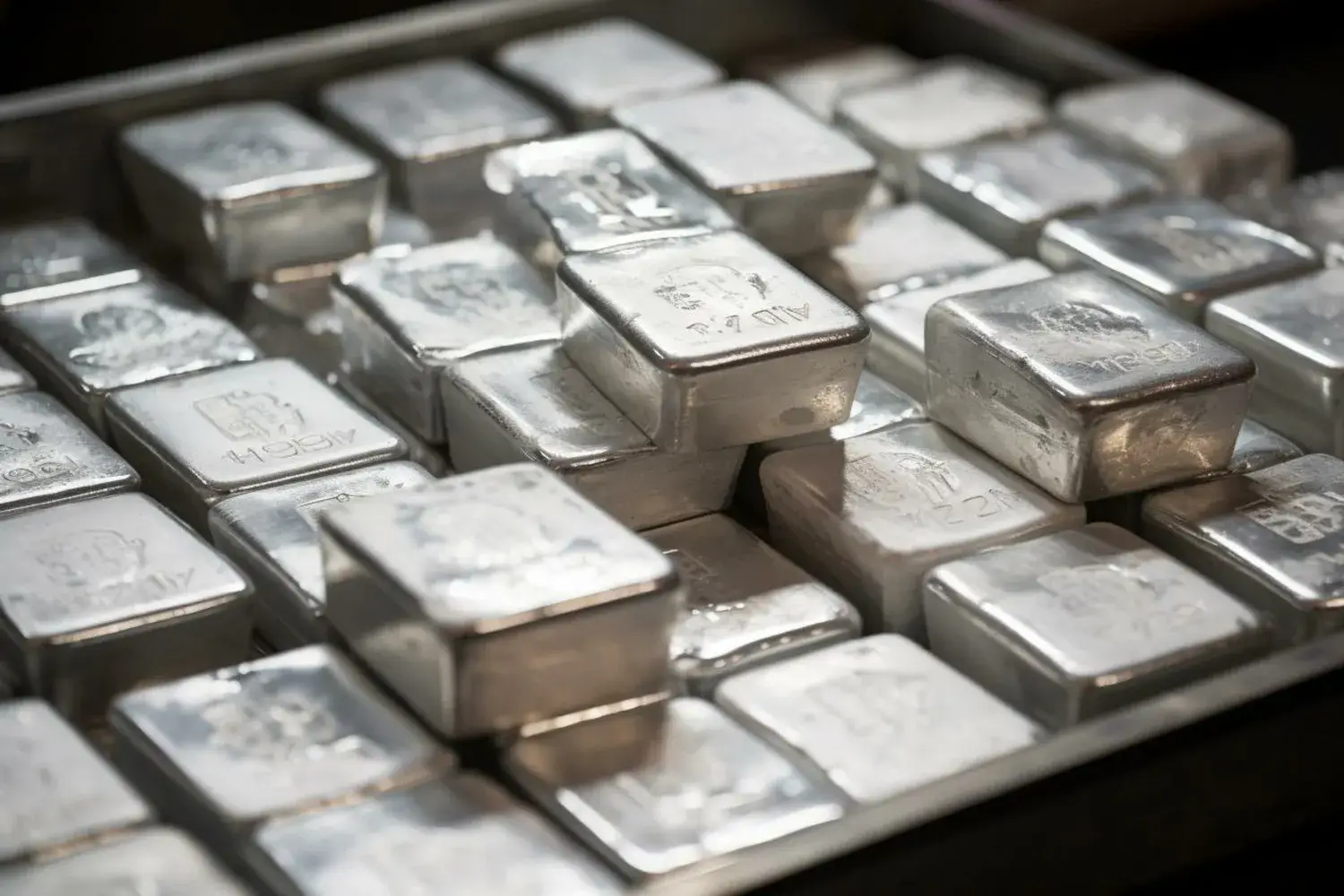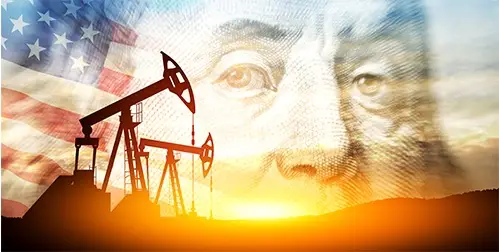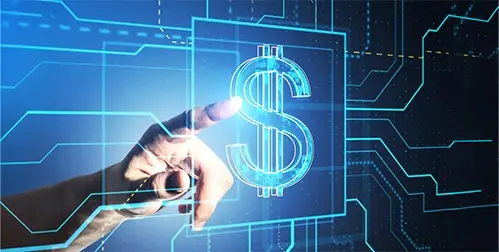- The AI stock market boom is evoking eerie memories of the dot-com bubble
- There are mixed economic metrics, some of which resemble the dot-com bubble right before it burst and wiped $5 trillion in value
- Diversifying your portfolio with physical precious metals can offer protection against potential stock market crashes
AI Hype Power Stock Market Boom
The stock market is buzzing with excitement over artificial intelligence (AI). Comparisons are being drawn to the dot-com bubble of the late 1990s. As investors pile into AI-related stocks, particularly chip manufacturer Nvidia, many are wondering if history is about to repeat itself.
Nvidia’s graphics processing units (GPUs) are the go-to solution for generative AI. They have seen their shares skyrocket by nearly 4300% over the past five years. This meteoric rise is reminiscent of Cisco’s 4500% surge before peaking in 2000. Nvidia’s success has propelled it to become the most valuable publicly traded company, mirroring the dominance of tech giants during the dot-com era.1
The current market boom is not limited to Nvidia alone. The stock market has reached record highs this year. The S&P 500 rose over 50% from its October 2022 low. The Nasdaq is up more than 70% since the end of 2022. This surge is largely attributed to the AI boom, echoing the internet-driven enthusiasm of the late 1990s.2
Growing Concerns
One striking similarity to the dot-com bubble is the concentration of market value in a small group of tech stocks. Today, just three companies – Microsoft, Apple, and Nvidia – make up over 20% of the S&P 500 index. Information technology now accounts for 32% of the S&P’s total market value, the largest proportion since 2000.3
 4
4
This concentration of value in a few companies is eerily like the “four horsemen” of the late 90s: Cisco, Dell, Microsoft, and Intel. History shows us the potential consequences of such market dynamics. Following the burst of the dot-com bubble, the Nasdaq plunged almost 80% from its March 2000 peak. More than $5 trillion in market value was wiped out by the crash.
The appeal of AI is undeniable. PricewaterhouseCoopers estimates that AI could add $15.7 trillion to the global economy by 2030. However, as with any emerging technology, there’s a gap between potential and reality. Companies are still figuring out how to effectively implement and monetize AI. This could lead to bumps in the road for even the most promising players like Nvidia.5
Financial metrics are sending mixed signals. Forward-year earnings and price/earnings-to-growth ratios aren’t raising immediate red flags. But some analysts are concerned about Nvidia’s trailing-12-month price-to-sales ratio. This metric compares a company’s current stock price to its sales revenue over the past year. That ratio is peaking at levels like those seen in Cisco and Amazon just before the dot-com bubble burst.
The broader market also shows signs of potential overvaluation. The Shiller CAPE ratio is designed to assess whether the stock market is overvalued or undervalued. It is near historic highs. This, combined with the concentration of gains in a small number of stocks, has led some experts to warn that the market is vulnerable to a major correction.
Lance Roberts is CIO of RIO Advisors. He points out that companies are fueling investor hopes by increasingly mentioning AI in their earnings reports. AI references have surged 70% since late 2022. Roberts warns, “We are again experiencing another of these speculative ‘booms,’ as anything related to artificial intelligence grips investors’ imaginations.”6
Several factors could potentially burst the AI bubble. These include a reduction in demand if AI’s utility doesn’t match the hype, increasing competition within the AI space leading to lower prices, or rising costs from suppliers cutting into profits.
The market’s future also hinges on broader economic factors. If inflation flares up and the Federal Reserve raises interest rates or doesn’t cut them as expected, investor expectations could rapidly shift. Capital Economics, a research firm, predicts that the AI-fueled stock bubble will burst in 2026. This will be due to rising interest rates and higher inflation bringing down equity valuations.
While Capital Economics expects the S&P 500 to potentially reach as high as 6,500 by 2025 off AI enthusiasm, they also forecast a subsequent correction.
“We suspect that the bubble will ultimately burst beyond the end of next year, causing a correction in valuations. After all, this dynamic played out around both the dot-com bubble of the late 1990s and early 2000s and the Great Crash of 1929,” stated economists at Capital Economics.7
The aftermath of such a correction could be significant. Capital Economics projects that between now and the end of 2033, US stocks will deliver average annual returns of just 4.3%. That is well below the long-term average of about 7% after inflation. This stands in stark contrast to the 13.1% average annual returns delivered by US stocks over the past decade.
Conclusion
While no one can predict exactly when a market crash may occur, it’s always better to be prepared. Even as stocks hit historic highs, the adage “what goes up must come down” often holds true in financial markets. Diversifying your portfolio with physical precious metals can offer protection against potential stock market downturns. A Gold IRA, in particular, provides a way to safeguard your retirement savings with the historically stable value of gold, helping to balance your investments against market volatility.
Notes:
1. https://www.firstpost.com/tech/repeat-of-the-dot-com-bubble-us-stock-market-may-be-looking-at-massive-crash-because-of-ai-stocks-13788430.html
2. https://www.firstpost.com/tech/repeat-of-the-dot-com-bubble-us-stock-market-may-be-looking-at-massive-crash-because-of-ai-stocks-13788430.html
3. https://www.firstpost.com/tech/repeat-of-the-dot-com-bubble-us-stock-market-may-be-looking-at-massive-crash-because-of-ai-stocks-13788430.html
4. https://www.businessinsider.com/stock-market-crash-dot-com-bubble-similarities-ai-nvidia-roberts-2024-6
5. https://www.fool.com/investing/2024/06/29/nvidia-going-to-crash-history-weighs-in-big-clue/
6. https://www.businessinsider.com/stock-market-crash-dot-com-bubble-similarities-ai-nvidia-roberts-2024-6
7. https://www.msn.com/en-in/money/markets/the-ai-fueled-stock-market-bubble-will-crash-in-2026-research-firm-says/ar-AA1nLJvx




 1
1




 4
4



 5
5


